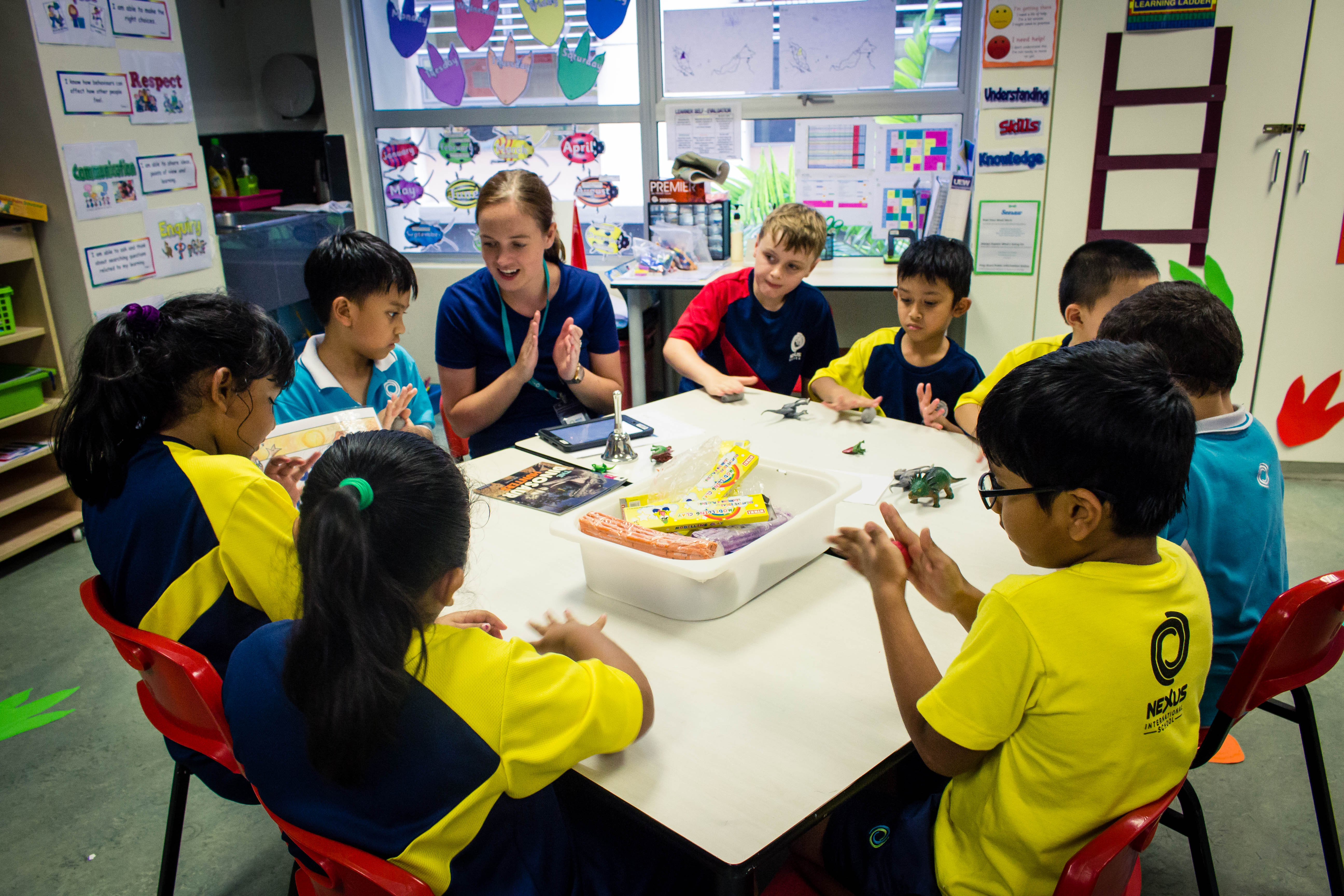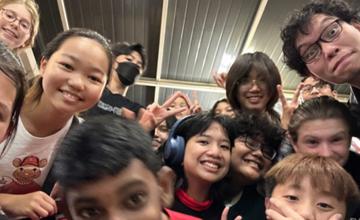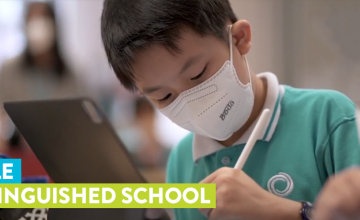5 Things Parents Should Know about International Primary Curriculum

Oct 30, 2017
How do we make learning interesting and meaningful for our children today? At Nexus International School Malaysia, the International Primary Curriculum (IPC) is an essential learning experience for our learners. Suitable for the transforming global landscape, the IPC is made to create and cultivate international minds through a mix of rigorous learning and intercultural awareness. We spoke to Ms Claire Waller, the Director of Learning and Teaching at Nexus, about the importance and impact of IPC in today’s ever-changing world.
1. What is the International Primary Curriculum (IPC)?
Bringing creativity, comprehensiveness and themes into modern classrooms, the IPC is an internationally-recognised curriculum that is designed for learners aged 5-12 years old.The IEYC caters for age 3-5 and provides essential stepping stones into the IPC.
“The IPC is divided into three categories of curriculum, which is the subject goals, personal goals and international goals,” Ms Waller begins. Subject goals involve academic learning such as History, Geography, Music, Art, Science, ICT, International, Society as well as Design and Technology. Personal goals, on the other hand, involves building characteristics and skills such as resilience, cooperation and rigour, which also serve as the foundation of the Nexus Neuron. “ The international goals help to develop an internationally-minded community,” she adds.
2. What is the structure of IPC?
The IPC structure is divided into three mileposts where all of the themes are mapped out individually.
Early Years - Nursery and reception - IEYC International EY curriculum
Milepost 1 - Year 1 and 2
Milepost 2 - Year 3 and 4
Milepost 3 - Year 5 and 6
"Each year group will cover around 6 themes each year. Every theme has a clear process of learning which is based on research into how children learn best.” Mrs Waller explains.
3. What is the learning process of IPC?
While there are over 100 themes to explore within the curriculum, Ms Waller shares that every single theme of work shares a similar learning process.
Step 1 Entry Point - This launches the new topic to learners. It is a very exciting part of the theme which hooks in learner’s interests and leaves them wanting to know more. The Entry Point is an activity that gives a taster of the theme. For example in the Milepost 2 topic Active Planet the teachers plan a morning of survival skill training which involves a carousel of activities such as packing an essential survival bag, raft building and first aid procedures.
Step 2 Knowledge Harvest - The knowledge harvest is to find out what the children already know about the topic. It is a pre assessment and the teachers use this to plan the theme to ensure all learners are appropriately challenged.
Step 3 Explaining the Theme - This is when the teachers explain the learning that will be covered in all subjects across the theme. Children learn best when they can make connections between what they’re learning and what’s coming up. It’s similar to the process of completing a jigsaw puzzle. In order to understand what to do you must see the cover picture on the box.
Step 4 Exit Point - This is the final stage where the learners will be sharing and celebrating the learning process. Parents are often invited into school to share in their child’s learning.
4. How will home learning complement the IPC journey?
Ms Waller believes that supplementing the lessons in school with home learning can magnify the impact of IPC’s learning process. “Home learning in IPC involves research. Something that is nice to work on with the family to deepen their knowledge and understanding about the topic,” she shares. “For example, in the theme Chocolate, they might learn about the origin of cacao trees and whether it is grown in their home countries. They might even interview their parents to find out more,” Ms Waller continues to elaborate. “Sometimes, it’s nice for them to get some support from the parents, but it shouldn’t be something that’s too difficult for the learners to understand”.
5. Why is IPC important in today’s classrooms?
With new opportunities, perspectives and innovations on the rise, the world has changed tremendously over the decade. Now, it’s more important than ever to find a curriculum that can adapt to these changes. “A lot of blue-chip companies are not looking at exam results anymore. They’re looking at personal characteristics,” Ms Waller enlightens us with new facts. “For instance, will the learner be able to collaborate with other team members? How well does the learner communicate with others? Those are the key aspects of personal goals in the IPC that prepares our learners for the future and the changing world,” she shares before adding that the IPC also develops an interest in the global awareness, which is essential to cultivate international mindedness and respect.
1. What is the International Primary Curriculum (IPC)?
Bringing creativity, comprehensiveness and themes into modern classrooms, the IPC is an internationally-recognised curriculum that is designed for learners aged 5-12 years old.The IEYC caters for age 3-5 and provides essential stepping stones into the IPC.
“The IPC is divided into three categories of curriculum, which is the subject goals, personal goals and international goals,” Ms Waller begins. Subject goals involve academic learning such as History, Geography, Music, Art, Science, ICT, International, Society as well as Design and Technology. Personal goals, on the other hand, involves building characteristics and skills such as resilience, cooperation and rigour, which also serve as the foundation of the Nexus Neuron. “ The international goals help to develop an internationally-minded community,” she adds.
2. What is the structure of IPC?
The IPC structure is divided into three mileposts where all of the themes are mapped out individually.
Early Years - Nursery and reception - IEYC International EY curriculum
Milepost 1 - Year 1 and 2
Milepost 2 - Year 3 and 4
Milepost 3 - Year 5 and 6
"Each year group will cover around 6 themes each year. Every theme has a clear process of learning which is based on research into how children learn best.” Mrs Waller explains.
3. What is the learning process of IPC?
While there are over 100 themes to explore within the curriculum, Ms Waller shares that every single theme of work shares a similar learning process.
Step 1 Entry Point - This launches the new topic to learners. It is a very exciting part of the theme which hooks in learner’s interests and leaves them wanting to know more. The Entry Point is an activity that gives a taster of the theme. For example in the Milepost 2 topic Active Planet the teachers plan a morning of survival skill training which involves a carousel of activities such as packing an essential survival bag, raft building and first aid procedures.
Step 2 Knowledge Harvest - The knowledge harvest is to find out what the children already know about the topic. It is a pre assessment and the teachers use this to plan the theme to ensure all learners are appropriately challenged.
Step 3 Explaining the Theme - This is when the teachers explain the learning that will be covered in all subjects across the theme. Children learn best when they can make connections between what they’re learning and what’s coming up. It’s similar to the process of completing a jigsaw puzzle. In order to understand what to do you must see the cover picture on the box.
Step 4 Exit Point - This is the final stage where the learners will be sharing and celebrating the learning process. Parents are often invited into school to share in their child’s learning.
4. How will home learning complement the IPC journey?
Ms Waller believes that supplementing the lessons in school with home learning can magnify the impact of IPC’s learning process. “Home learning in IPC involves research. Something that is nice to work on with the family to deepen their knowledge and understanding about the topic,” she shares. “For example, in the theme Chocolate, they might learn about the origin of cacao trees and whether it is grown in their home countries. They might even interview their parents to find out more,” Ms Waller continues to elaborate. “Sometimes, it’s nice for them to get some support from the parents, but it shouldn’t be something that’s too difficult for the learners to understand”.
5. Why is IPC important in today’s classrooms?
With new opportunities, perspectives and innovations on the rise, the world has changed tremendously over the decade. Now, it’s more important than ever to find a curriculum that can adapt to these changes. “A lot of blue-chip companies are not looking at exam results anymore. They’re looking at personal characteristics,” Ms Waller enlightens us with new facts. “For instance, will the learner be able to collaborate with other team members? How well does the learner communicate with others? Those are the key aspects of personal goals in the IPC that prepares our learners for the future and the changing world,” she shares before adding that the IPC also develops an interest in the global awareness, which is essential to cultivate international mindedness and respect.


